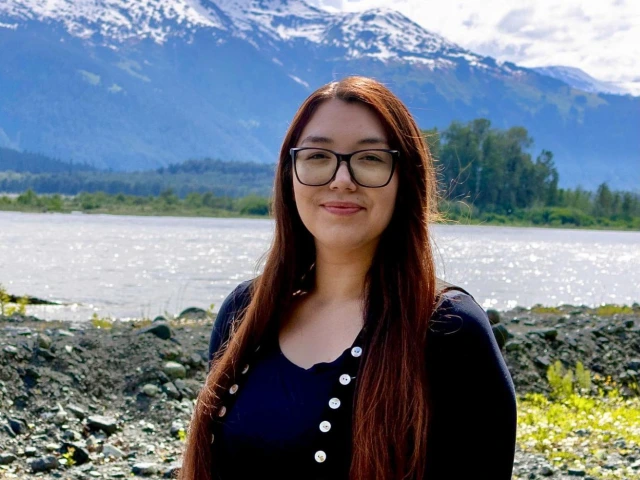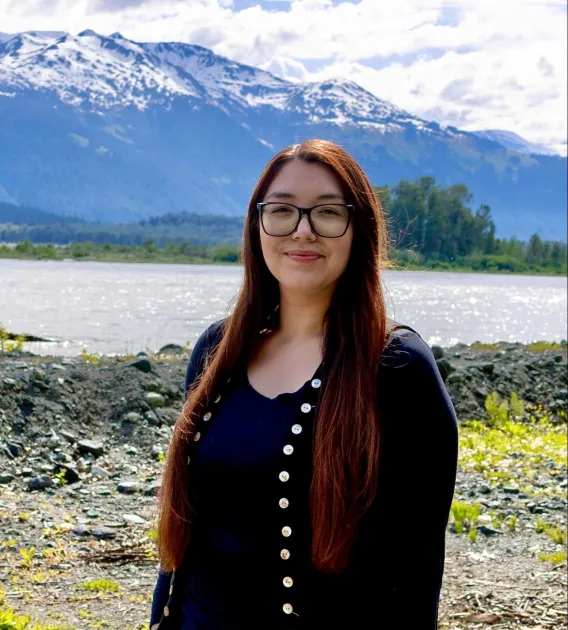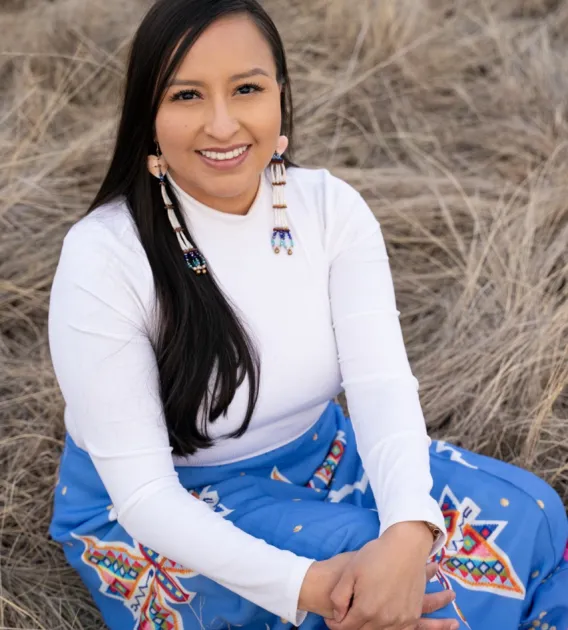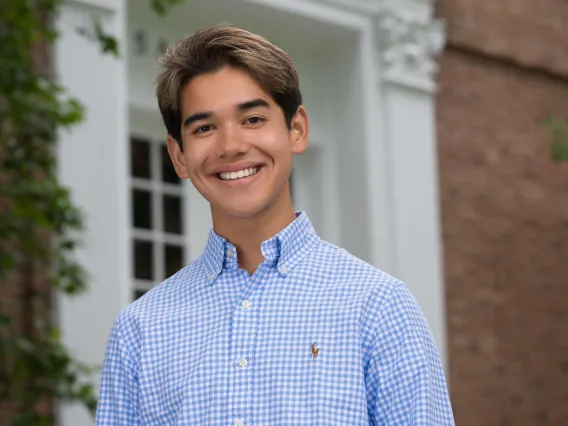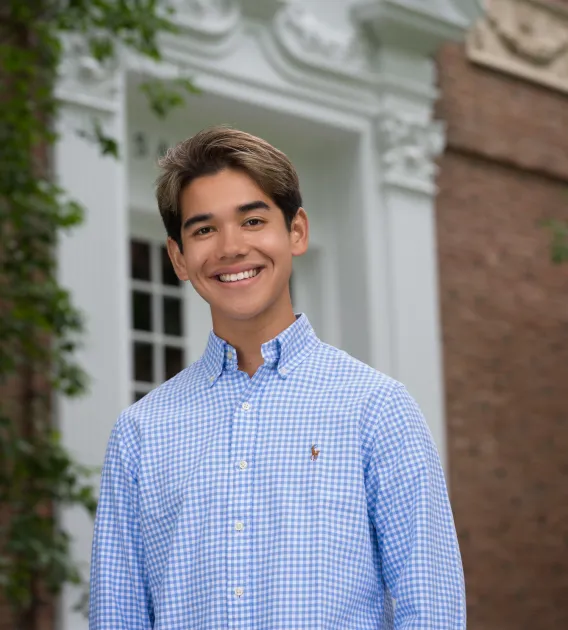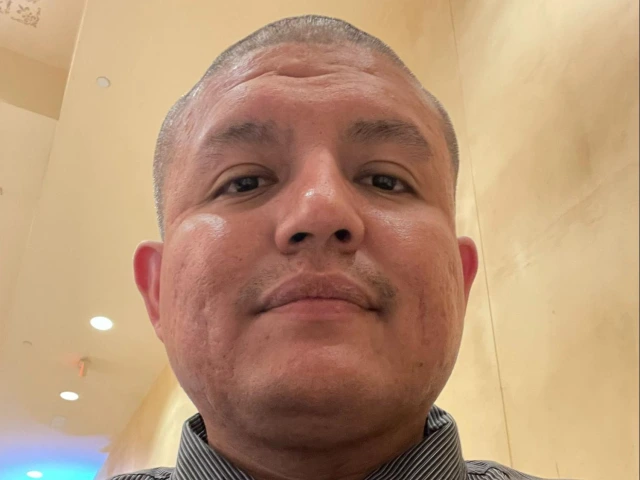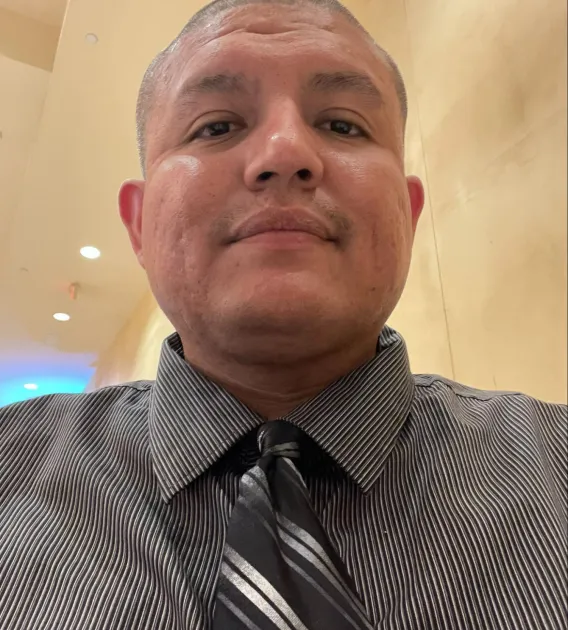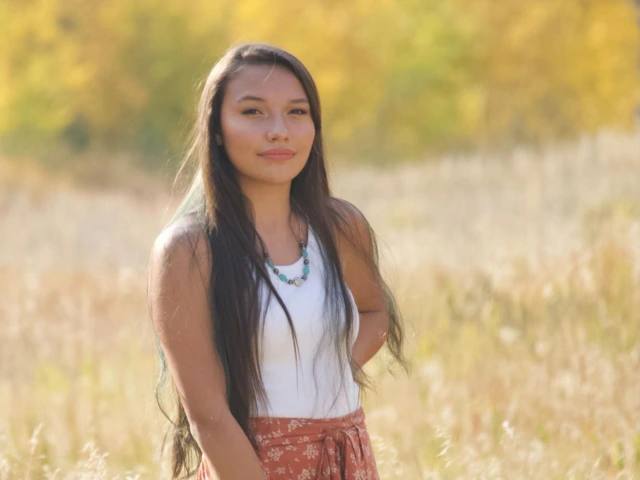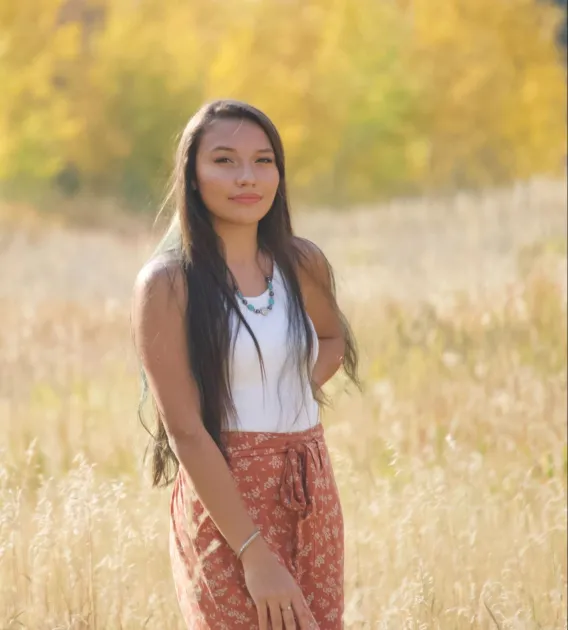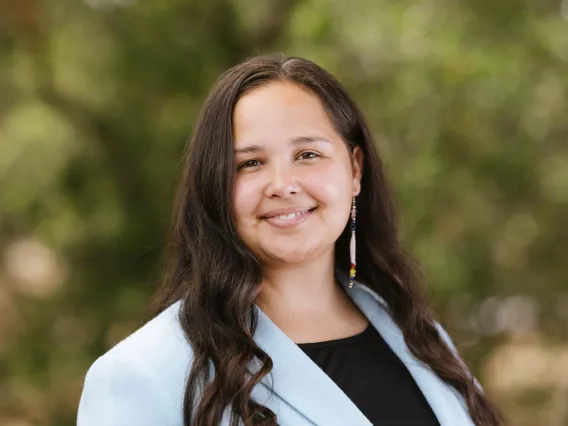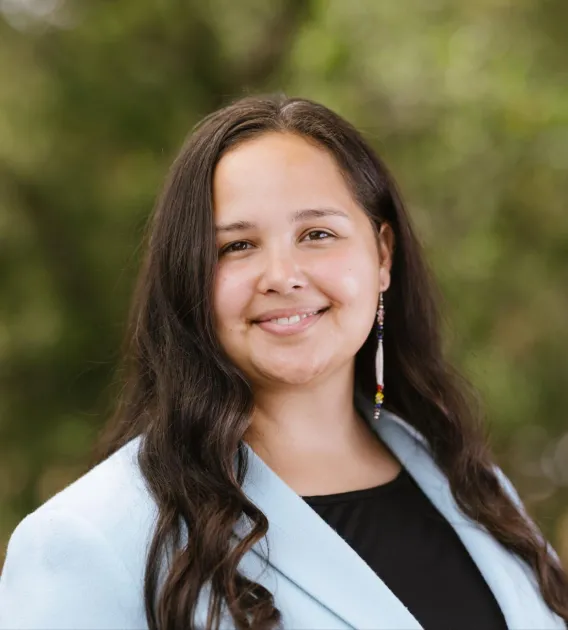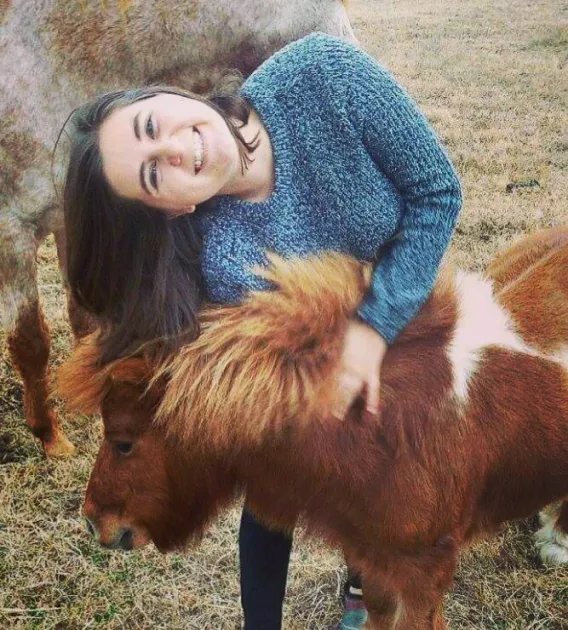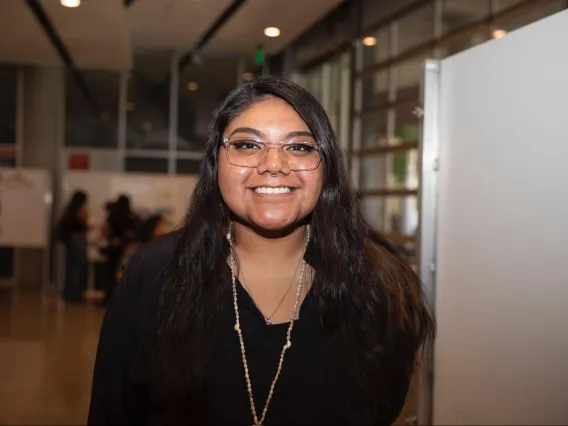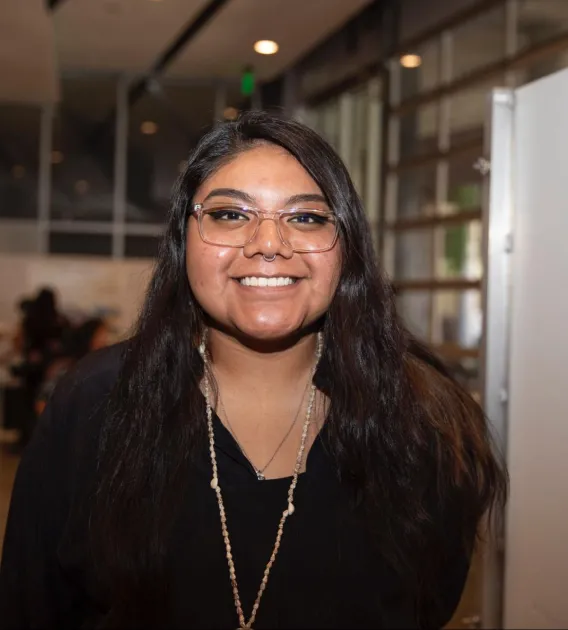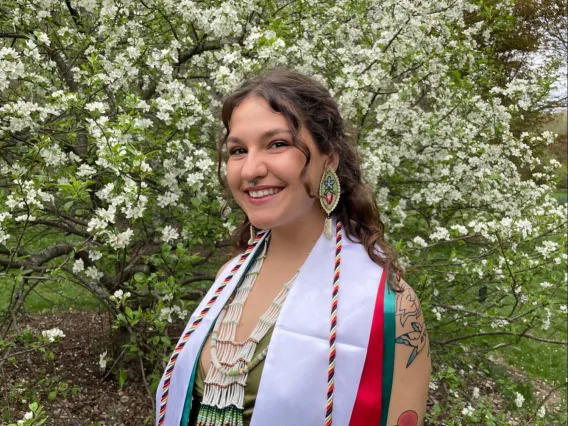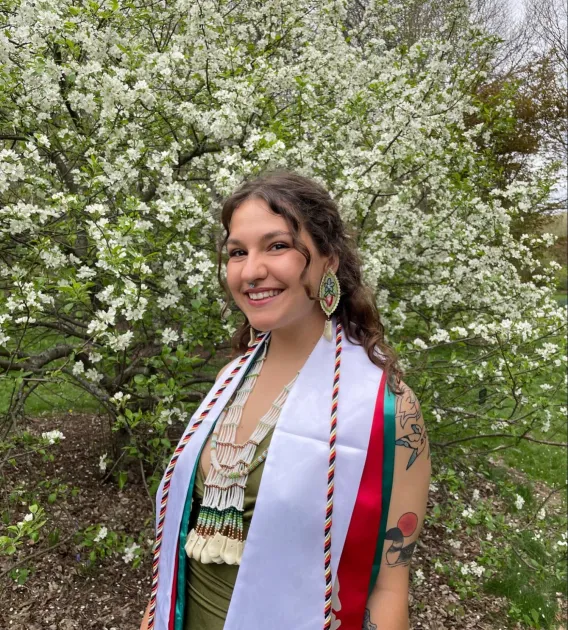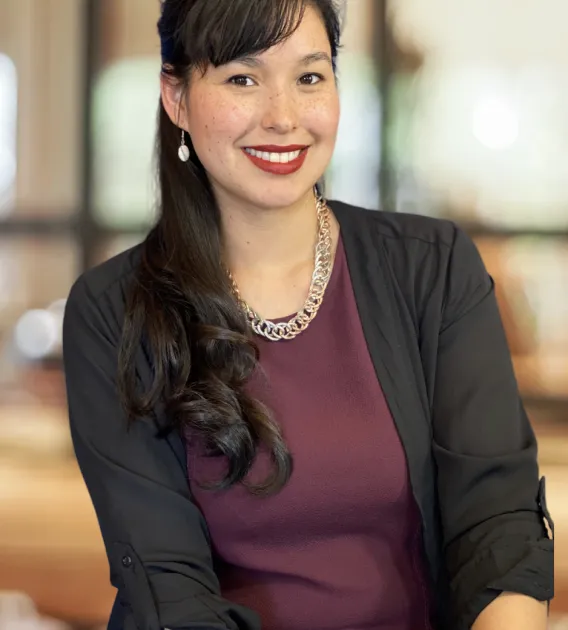We’re delighted to introduce this year’s Planet Forward Ilíiaitchik: Indigenous Correspondents, a passionate and diverse group dedicated to communicating environmental issues and solutions within their communities and beyond.
This year, the students in the Ilíiaitchik program truly embody the meaning of the program’s namesake, which roughly translates to “speak good things” from Apsáalooke. They aim to tell stories that bring awareness to local issues with far-reaching impacts, such as proposals to construct acid-generating mines along the biologically rich Chilkat River watershed and the hard-fought battles wildland firefighters have undertaken to protect traditional cultural practices for tribes in the Southwest.
Beyond highlighting the causes and consequences of these issues, the students are excited to showcase the resilience and ingenuity of local communities. They are drawing from cultural practices, ancestral knowledge, and technology to address challenges ranging from habitat degradation to pollution and human health risks. In doing so, the students tell stories that truly do “good things” for the world—providing inspiration and examples of how we can create a more vibrant, resilient, and equitable future.
Members of Planet Forward’s Ilíiaitchik: Indigenous Correspondents Program undergo an application process that encourages them to reflect on their passions, aspirations for storytelling, and the topics they hope to explore. While many students come from non-media and non-journalism backgrounds, a shared commitment to storytelling unites them. This storytelling takes many forms, including song, poetry, education, and on-the-ground outreach, all with the goal of uplifting their communities and connecting them to the wider world.
Throughout this year’s program, the Indigenous Correspondents will receive one-on-one mentorship from award-winning Diné filmmaker, producer, director, scriptwriter, and actor Ivey Camille Manybeads-Tso. They will also participate in a series of eight monthly workshops led by Indigenous creatives working in fields ranging from trauma-informed storytelling to music and podcast creation.
We eagerly anticipate the storytelling journey ahead and invite you to tune in to read, watch, and listen to these students’ inspiring works.
P.S. Click check out the students’ profiles below to read their bio, and stay tuned for their stories!
Meet the Correspondents
close
Shawna Hotch
Shawna Hotch is from the Jilkáat Kwaan in southeast Alaska, and a proud tribal member of the Chilkat Indian Village of Klukwan. She is deeply committed to advancing tribal sovereignty, advocating for tribally-led efforts to protect and sustain the traditional way of life, and upholding tribal values in contemporary initiatives. Her work is dedicated to strengthening the health and resilience of the Chilkat Valley through tribal initiatives rooted in environmental stewardship, community empowerment, and tribal infrastructure development.
close
Robyn Kay Iron
Bimmaaxpeé (Medicine Water), Robyn Iron, is a journalism major at the University of Montana. She is Apsaalooké and Tsitsistas and grew up on the Northern Cheyenne and Crow Reservation. She is a mother of two currently living in St. Ignatius, MT. Robyn graduated from Salish Kootenai College in 2023. She is a first-generation student, on a mission to tell Indigenous stories around the world.
close
Chase Kamikawa
Chase Kaleopono Kamikawa is an undergraduate student at Dartmouth College studying History and Environmental Studies. Growing up in Honolulu, Hawaiʻi as a Native Hawaiian, Chase was immersed in the Hawaiian culture, language, and values from a young age. Although 5,000 miles from his home, Chase finds opportunities at Dartmouth to perpetuate his culture and maintain his cultural identity.
close
Joshua Massey
Joshua Massey is an undergraduate student studying Public health with an emphasis in Environmental at University of Arizona. He is a member of the White Mountain Apache Tribe located in Arizona and currently resides in Phoenix, AZ. He is married and has two boys that are 10 and 18 years old.
close
Taliyah Medicine Horse
M’oxéšéh’aé/Mint Woman, Taliyah Medicine Horse grew up along Vétanovéoé’e/ the Tongue River in Totoemanâheno/ Ashland, Montana and is a member of the Tsétsėhéstȧhese/Northern Cheyenne and Apsálooke/Crow Nations. Currently attending Chief Dull Knife College on the Northern Cheyenne reservation, Taliyah is an aspiring ethnobotanist majoring in Horticulture focusing on the traditional uses of medicinal and edible plants. Her growing love for preserving traditional knowledge of plants and food sovereignty comes from respected Northern Cheyenne elders.
close
Karli Moore
Karli Moore is a member of the Lumbee Tribe and is pursuing a PhD in environment and resources at Stanford. She grew up on a family farm near Prospect, NC, and aspires to advance food sovereignty and economic development for Indigenous communities through sustainable agriculture practices and policies. She earned bachelor's degrees in chemistry and agricultural business management from NC State University, master's degrees in agricultural economics (University of Arkansas) and rural development (Ghent University), and a graduate certificate in food policy from Arizona State University.
close
S. Claire Neel
S. Claire Neel (she/her) is a citizen of the Cherokee Nation whose passion for the natural world and her people has manifested through her rich poetics. She is currently pursuing a degree in Creative Writing at the Institute of American Indian Arts. Her poetry often features the land that raised her and the people of her communities. Claire grew up on a cattle ranch in rural Oklahoma where she was able to spend most of her time outdoors exploring nature and getting into trouble. She has had to receive several emergency tetanus shots.
close
Trinity Norris
Trinity Norris is a graduate student in the second year of her Master’s program in Global Media, building on a strong foundation from her Bachelor of Arts in Journalism with an emphasis in Digital Journalism and a minor in Information Science & Esociety, earned in May 2023. Trinity is a member of the Tohono O’odham Nation and grew up in Sells, Arizona. She now resides in Tucson, Arizona, as she attends the University of Arizona.
close
Sagen Lily Quale
Sagen Lily Quale (Red Cliff Band of Lake Superior Ojibwe) is a first-year Master's student in agroecology at the University of Wisconsin-Madison. Originating from Northern Wisconsin's Great Lakes Region, she has a strong background in Sociology and a deep passion for social engagement and community-driven solutions. Sagen's work centers on the intersection of traditional ecological knowledge and modern science, particularly through her research on manoomin (wild rice) and its role in food sovereignty.
close
Angel Stickman
Angel Stickman is Inupiaq and a member of the Native village of Shungnak in Northwest Alaska. She is a wife and mother of three and currently resides in Fairbanks. When she lived in Shungnak, she would go to summer camp for weeks, where she helped her grandma and grandpa fish and harvest berries. She remembers going rabbit hunting with her dad in freezing temperatures; her dad and grandpa came home with various animals, such as caribou, bears, lynx, beavers, wolves, and ducks throughout the year. How she grew up is why she is passionate about protecting her home.


